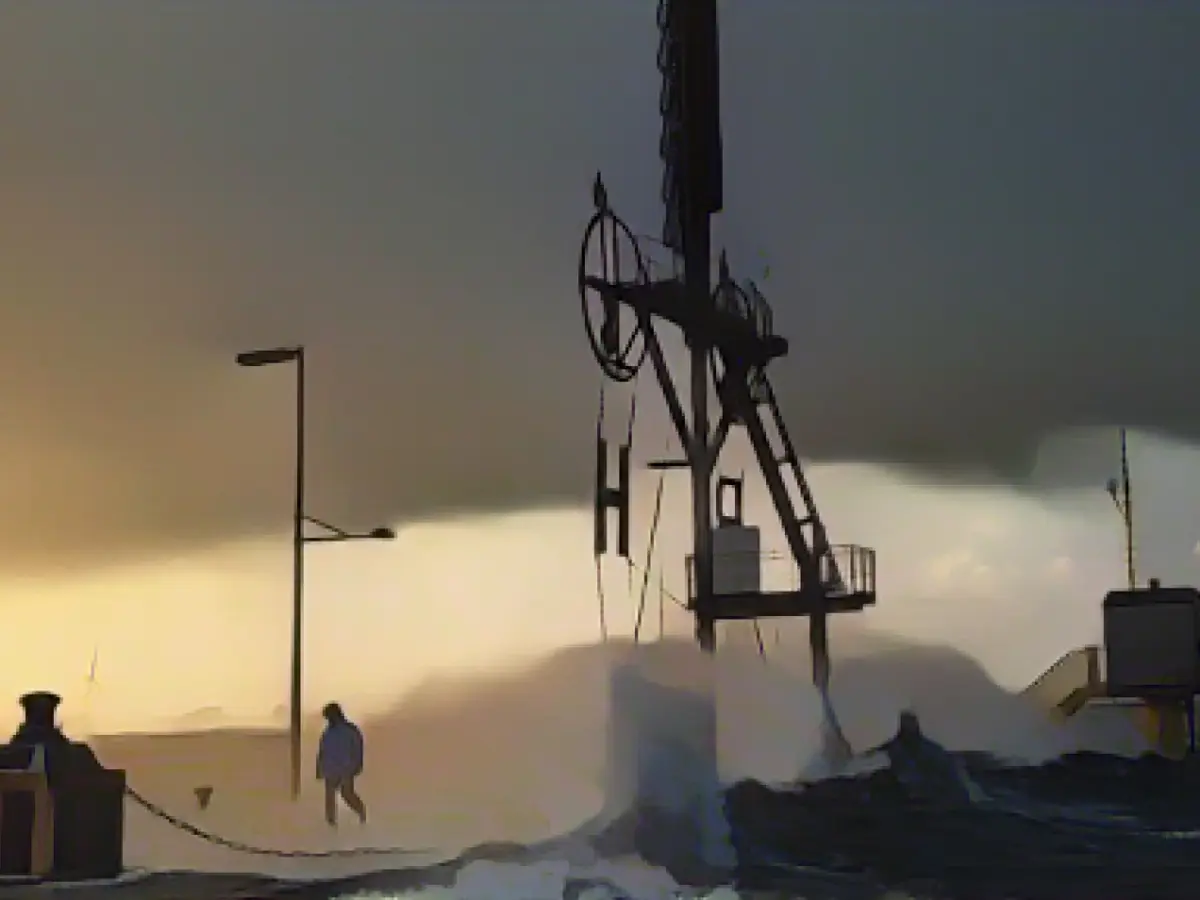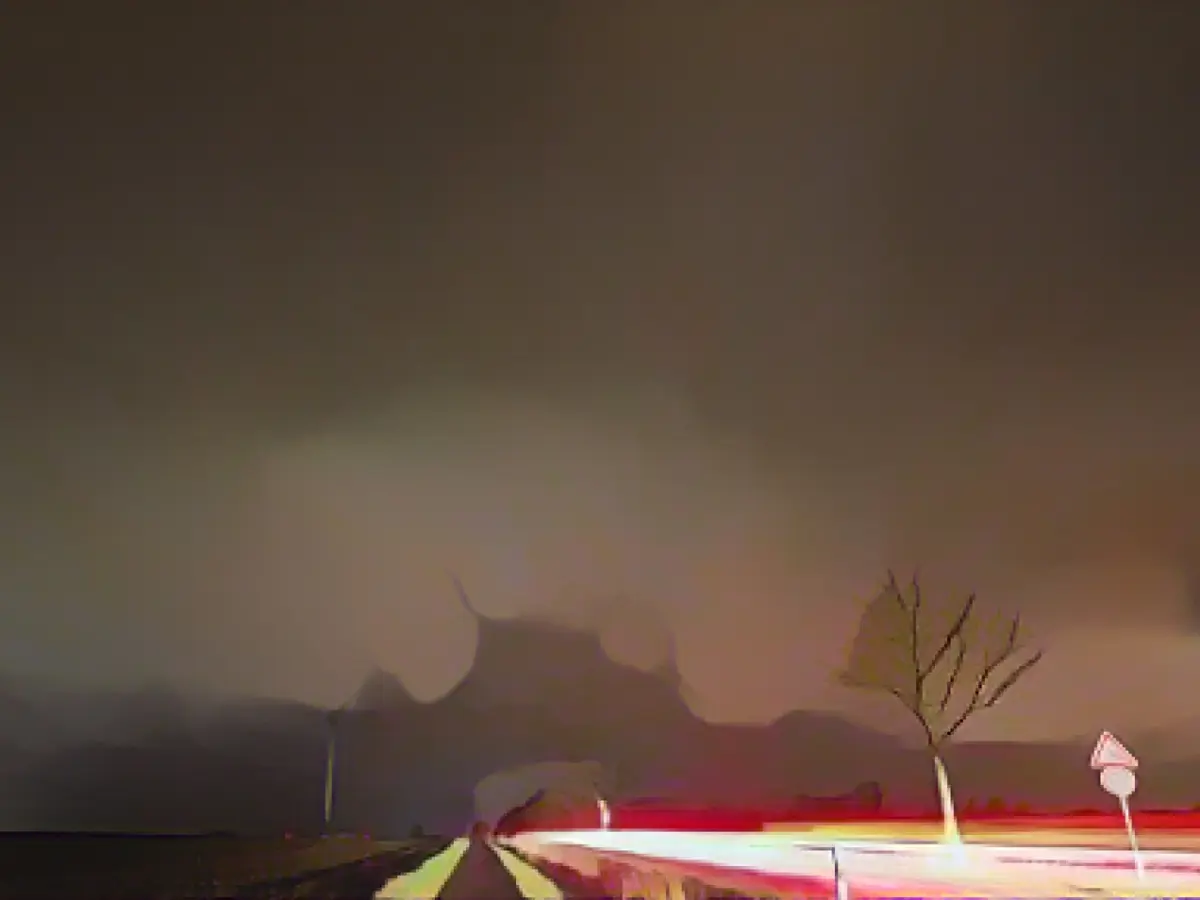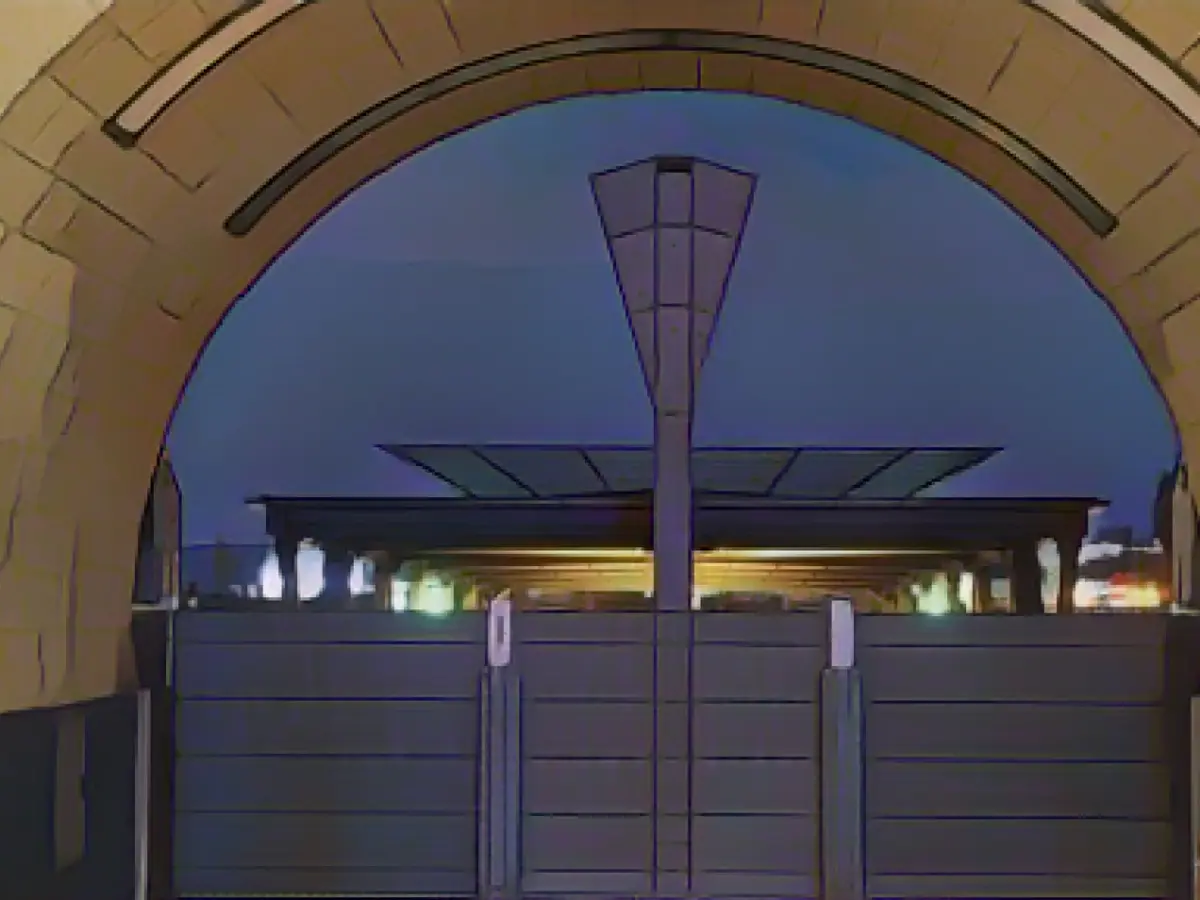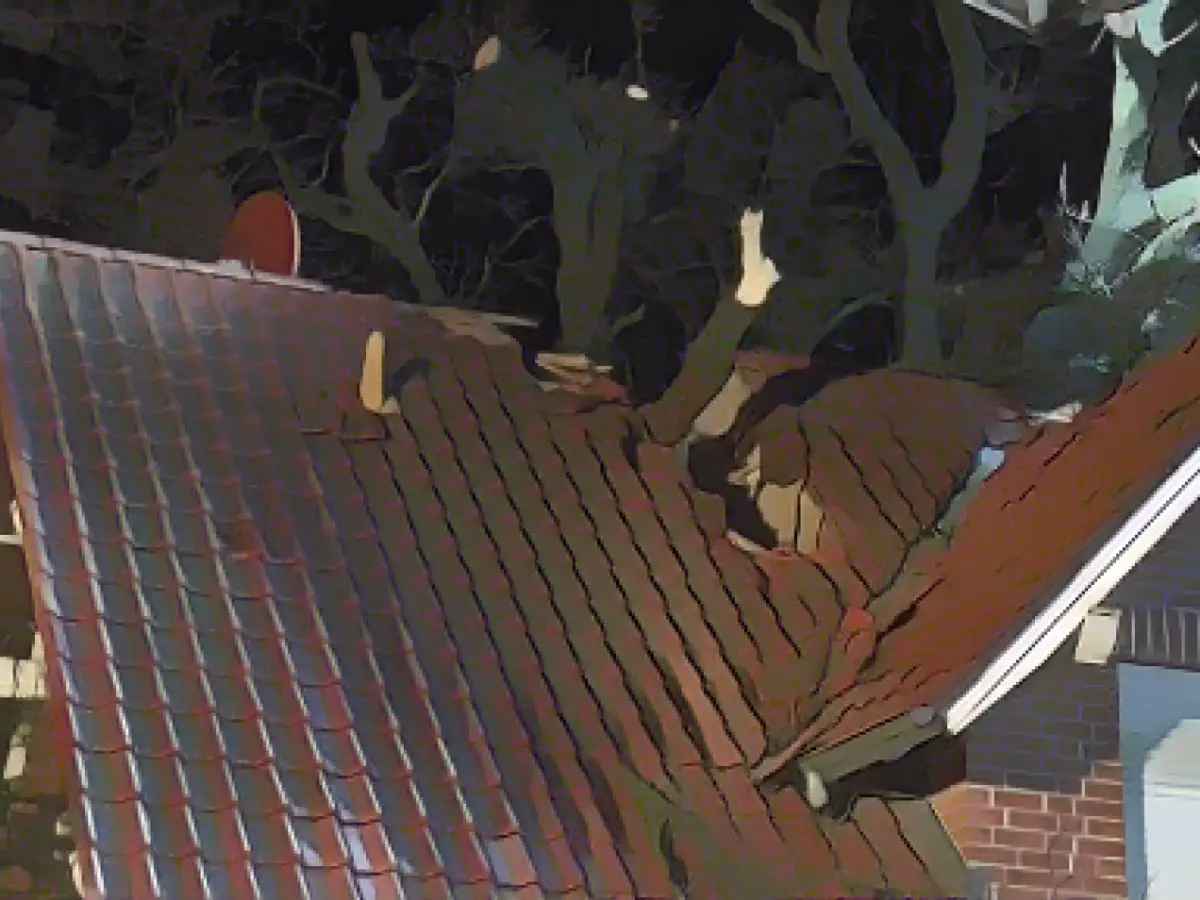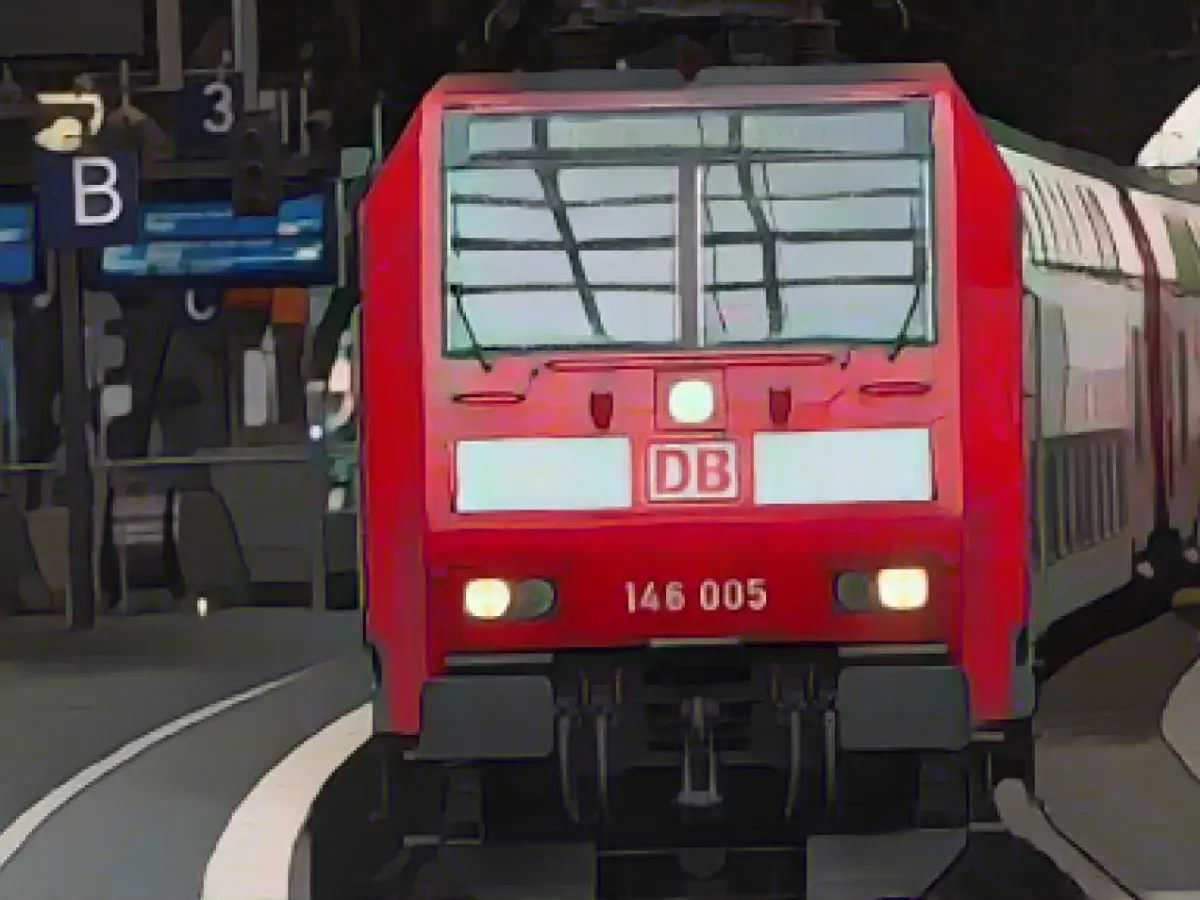Inclement Weather: Storm "Zoltan" Brings Misery to Rail Travelers
The much-anticipated Christmas travel plans of many rail customers in Germany have taken a turn for the worst with the arrival of storm "Zoltan." Deutsche Bahn, the national railway company, announced substantial disruptions and cancellations on their long-distance services due to the storm's damage, affecting rail routes nationwide on Friday. The north of Germany was particularly hit hard, with potential cancellations or delays impacting connections between cities like Hamburg and Frankfurt, as well as Hamburg and Munich, and the likelihood of some stops being canceled altogether.
In Hamburg, the Elbe's water levels were expected to rise even further than initially assumed due to the storm surge. Railroad spokeswoman Losch stated, "DB is using heavy equipment to clear the lines as quickly as possible." They also warned passengers to check schedules on the "DB Navigator" app or the bahn.de website to be prepared for any changes in their journeys on Friday.
The storm's fury hit northern Germany hard, with fallen trees damage overhead lines or blocking routes. Deutsche Bahn's response included hauling clearing teams across the country with repair vehicles to remove debris and fix overhead lines. Passengers were advised to heed the warnings and plan their journeys accordingly.
Unfortunately, a S-Bahn train suffered damage in Hamburg shortly before midnight after hitting a fallen tree. The train was traveling at around 40 kilometers per hour; luckily, no passengers were injured, and firefighters removed the obstacle.
The Hamburg fish market and surrounding streets were left inundated from the Elbe's storm surge, waist-deep in water. The water level was anticipated to peak at 5.20 meters, spurring the Central Disaster Team of Hamburg's Interior Ministry to mobilize their resources.
Despite the disruptions, Deutsche Bahn has a silver lining for tickets holders: affected passengers can utilize their tickets on a future date, even if the route has changed. To take advantage, simply present the sticker or proof of purchase for the new date of travel.
Residents of Belgium were not spared, either. A woman was reportedly killed at a Christmas market in Oudenaarde when a 20-meter tall fir tree succumbed to a powerful gust of wind, crashing to the ground and fatally injuring her. The tree tragically tumbled onto three people, with the woman succumbing to her injuries later in the hospital.
Furthermore, stronger gusts of 100 kilometers per hour were predicted to hit the coast on Friday evening, despite the wind slowly lessening throughout the day. The threat of turmoil persisted, leaving many travelers anxious about the upcoming days.
Enrichment Insights:
- Storm Zoltan is part of a broader series of winter storms sweeping across Europe in 2023 and 2024, cumulatively causing extensive economic losses and infrastructure damage across Western and Central Europe, as well as Eastern Europe[1][2].
- The storms have further highlighted Europe's vulnerability to extreme weather events and the need for preventive measures to mitigate the impacts on transportation, infrastructure, and human lives[1].
- Disruptions in travel services proved detrimental for the region's economy, causing businesses relying heavily on transportation to experience challenges in delivering goods and services. The German Federal Police, for example, had to divert personnel to clear roads blocked by fallen trees in the following days[1][2].
- The storm's most severe impacts on Baden-Württemberg, a state in southern Germany, included a torn copper sheet roof detaching from a fire station building and causing damage to the facility[3].
- Environmental and climate scientists have emphasized that severe weather events like Zoltan will become more frequent as the global climate continues to warm up, resulting in increasingly frequent storms and increased vulnerability of cities [1][2].
[1] EuroNews WEATHER: Europe hit by severe winter storms, leaving behind dead and destruction. (2024, December 12). EuroNews.
[2] BBC Weather, (n.d.). Brexit News - BBC News. BBC.
[3] Associated Press., (n.d.). Severe winter weather causes travel chaos in Europe. Yahoo News.
